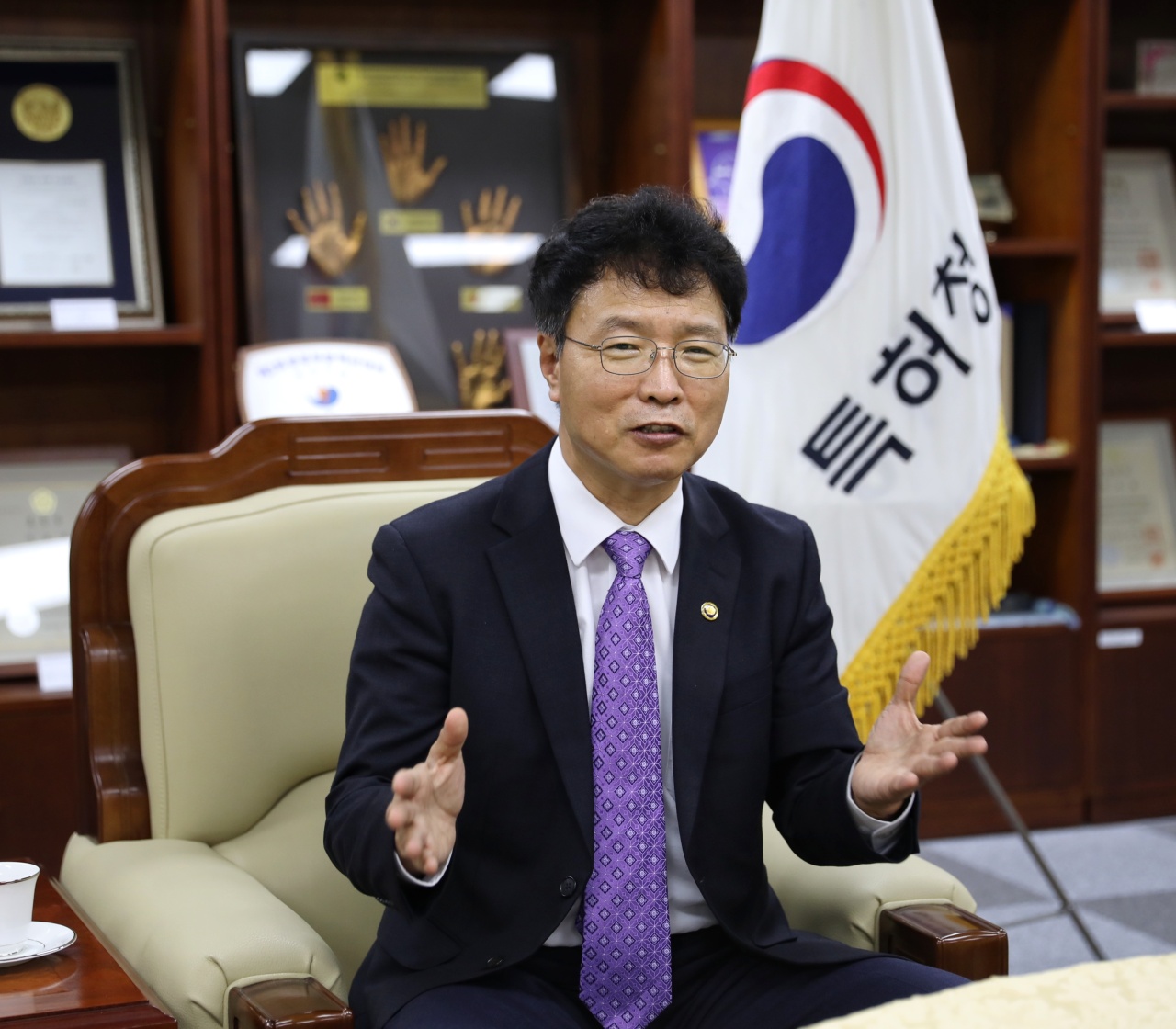 |
Kim Yong-rae, commissioner of the Korean Intellectual Property Office |
The chief of the nation’s intellectual property office vowed Wednesday to reinforce intellectual property rights protection of digital inventions to contribute to South Korea‘s efforts to become a pacesetting nation in the digital era.
“In the era of digital economy, business realms driven by digital intellectual property are forecast to expand rapidly. A transition to digital economy depends on active creation of patents for innovative digital technologies across industries as well as proper safeguards for their property rights,” said Kim Yong-rae, commissioner of the Korean Intellectual Property Office.
“In the case of AI devices advancing to a degree of being able to replace human inventors, (KIPO) and related organizations will continue to promote patent policies for monitoring AI-created inventions,” Kim said.
Earlier this week, KIPO announced its policy direction for measures to protect inventions produced by artificial intelligence. The authority is planning to grant exclusive rights for AI-created inventions only when under the control of a human workforce by revising the patent law, he added.
Along with AI-created inventions, the intellectual property office will also establish property rights for virtual software products like a virtual keyboard -- a software component in virtual space that allows the input of characters on a computer screen without physical keys -- officials said.
Meanwhile, as part of a move to support the Moon Jae-in administration’s New Deal initiative, the intellectual property chief pledged to support local firms in green and digital sectors to secure patents for new inventions.
“This year, the KIPO is planning to extend its IP-R&D support project to some 100 New Deal projects, whereby the agency’s patent experts analyze related companies’ research and development process to offer strategies on how to ensure patent rights for new technologies or prevent and avoid patent infringement,” Kim said.
To do so, the KIPO has set aside a budget of more than 40 billion won ($36 million won) for the envisioned plan, up 12 percent from 36.1 billion won spent last year, he added.
The Korean New Deal, announced on July 14 last year, is the government-led policy to create new growth engines and jobs in eco-friendly businesses as well as digital transformation across industries.
Kim stressed big data analytics is at the core of a successful patent creation, which helps domestic companies with setting strategic long-term R&D goals.
“By analyzing large datasets on patents at home and abroad, companies can launch R&D projects in a way that doesn’t infringe on their local and foreign competitors’ technologies or business models,” he said.
“Also, the big data analytics can suggest effective corporate strategies to develop technologies and preoccupy related patents in blue chip sectors expected to see a rise in patent application.”
On June 18 last year, KIPO and the Ministry of Trade, Industry and Energy launched the National Patent Big Data Center designed to analyze nearly 480 million international patents across the globe to inform local companies of promising future technologies and strategies to nurture them.
While ramping up efforts to foster big data usage in the field of patents, the government agency pledged not to overlook its side effects, including information leakage or theft.
“Data usage and protection are like two sides of a coin. (KIPO) will promote measures to impose heavier penalties on fraudulent activities regarding big data applications after hearing from various market experts, for the sake of data protection,” Kim said.
By Choi Jae-hee & Lee Kwon-hyung (
cjh@heraldcorp.com) (
kwonhl@heraldcorp.com)







![[Today’s K-pop] Blackpink’s Jennie, Lisa invited to Coachella as solo acts](http://res.heraldm.com/phpwas/restmb_idxmake.php?idx=644&simg=/content/image/2024/11/21/20241121050099_0.jpg)
